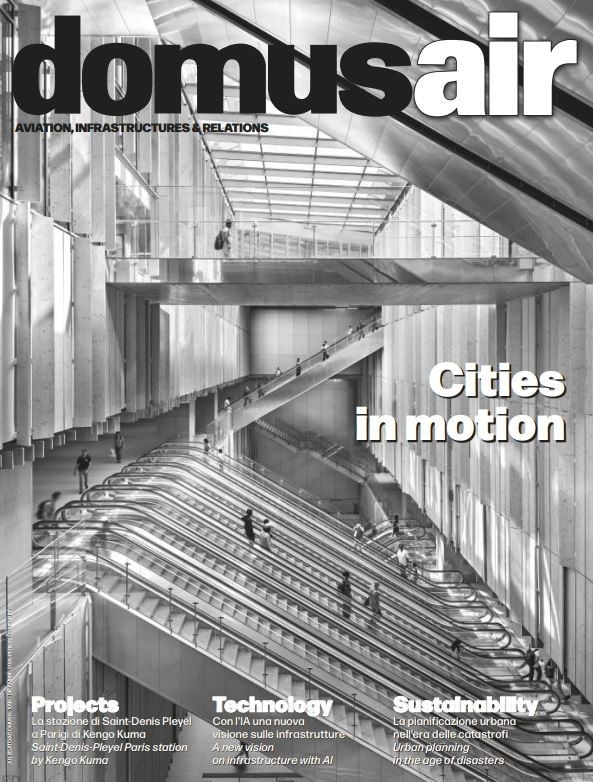DomusAir is an expression of Domus, which in turn belongs to the galaxy of Editoriale Domus, founded back in 1928 by Gianni Mazzocchi - one of the most extraordinary figures in culture and its popularization of the twentieth century - on three axes of interpretation of reality. Architecture and design; mobility and the democratization brought about by the private car revolution; leisure and the quality of gastronomic culture.
Vertical themes that intersect with each other horizontally, building a plot that tries to read the world by attempting to attribute meaning to it. In this issue of DomusAir, mobility is the protagonist, because it represents the dimension that best explains the logic and dynamics of the functioning of a society, describing its system of power relations but also the construction of identities.
As is well explained in the contributions you will read, today mobility represents one of the greatest strengths of cities, a physical but also immaterial structure that is at the center of the debate about the present and the future because it has at its core accessibility, which is the qualifying element and transversal to other perspectives.

We usually identify smart cities with cutting-edge digital tools, smart sensors applied to urban space. As is explained in the next pages, this is partly true, but the intelligence of a city depends largely on the purpose for which such tools are used.
In this sense, mobility is a real test case because it generates large amounts of data every day. There is a first critical point here, because although this data has reached an enormous amount, we have only just begun to understand how to collect it, organize it, and turn it into useful information for the community. Indeed, we must always remember that on their own, data do not generate value or meaning, but only succeed in doing so when organized. Mobility data is no exception, gaining value only if it is aggregated for the purpose of determining decision making.
In our cities, turning data into information and making it available to the community is a central and determining element. This element, of course, must be accompanied by a law, ensuring that the data collected protects the citizenry and lays the foundation for a more transparent and better society. The public value of data, then, especially with respect to the movement of goods and people, is more important than the private value.
And in this sense, although mobility is a variable derived from multiple factors - settlement trend, urban form, socio-demographic arrangement, cultural tradition - it is the decisive enabler for a richer, more cohesive and inclusive future.

